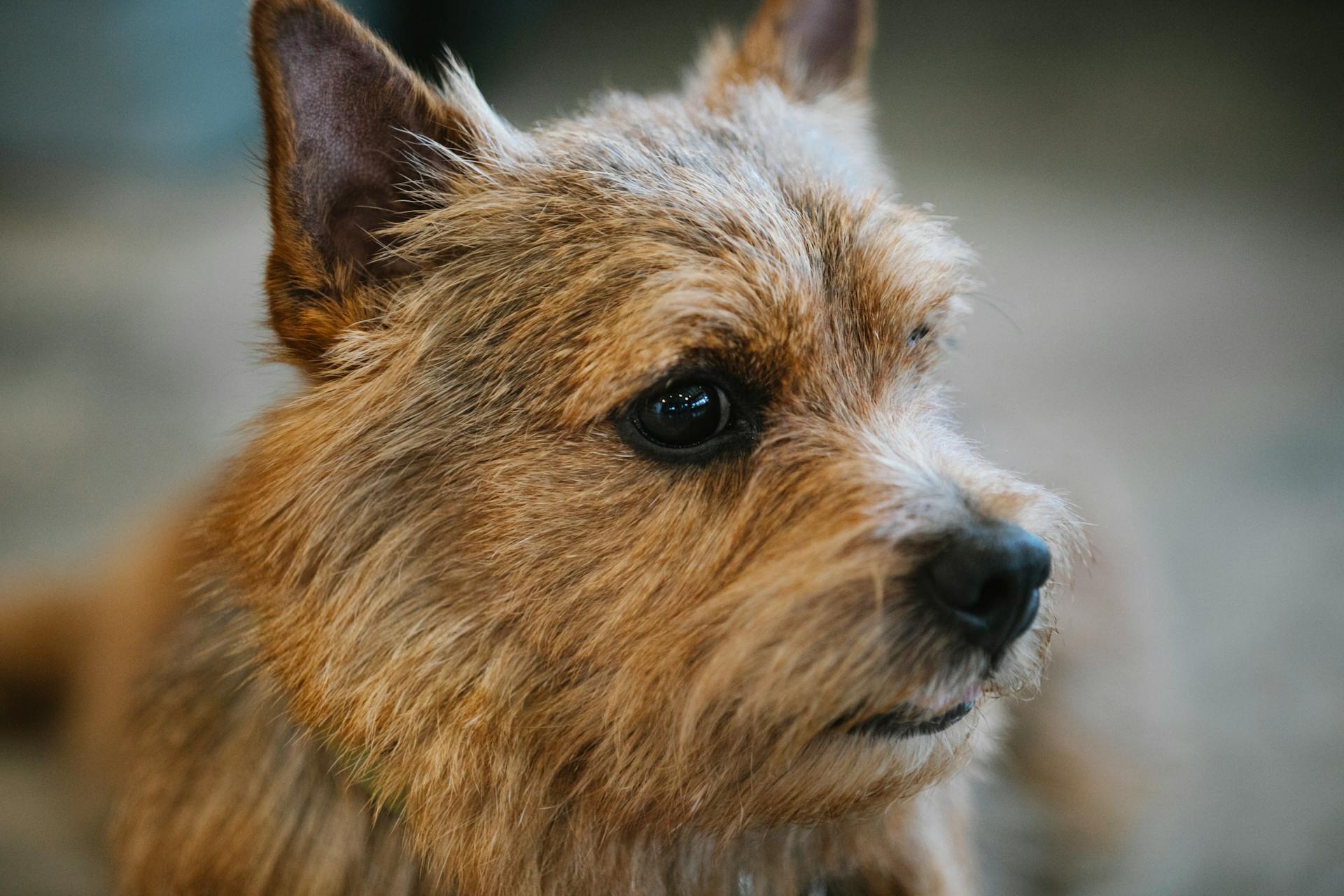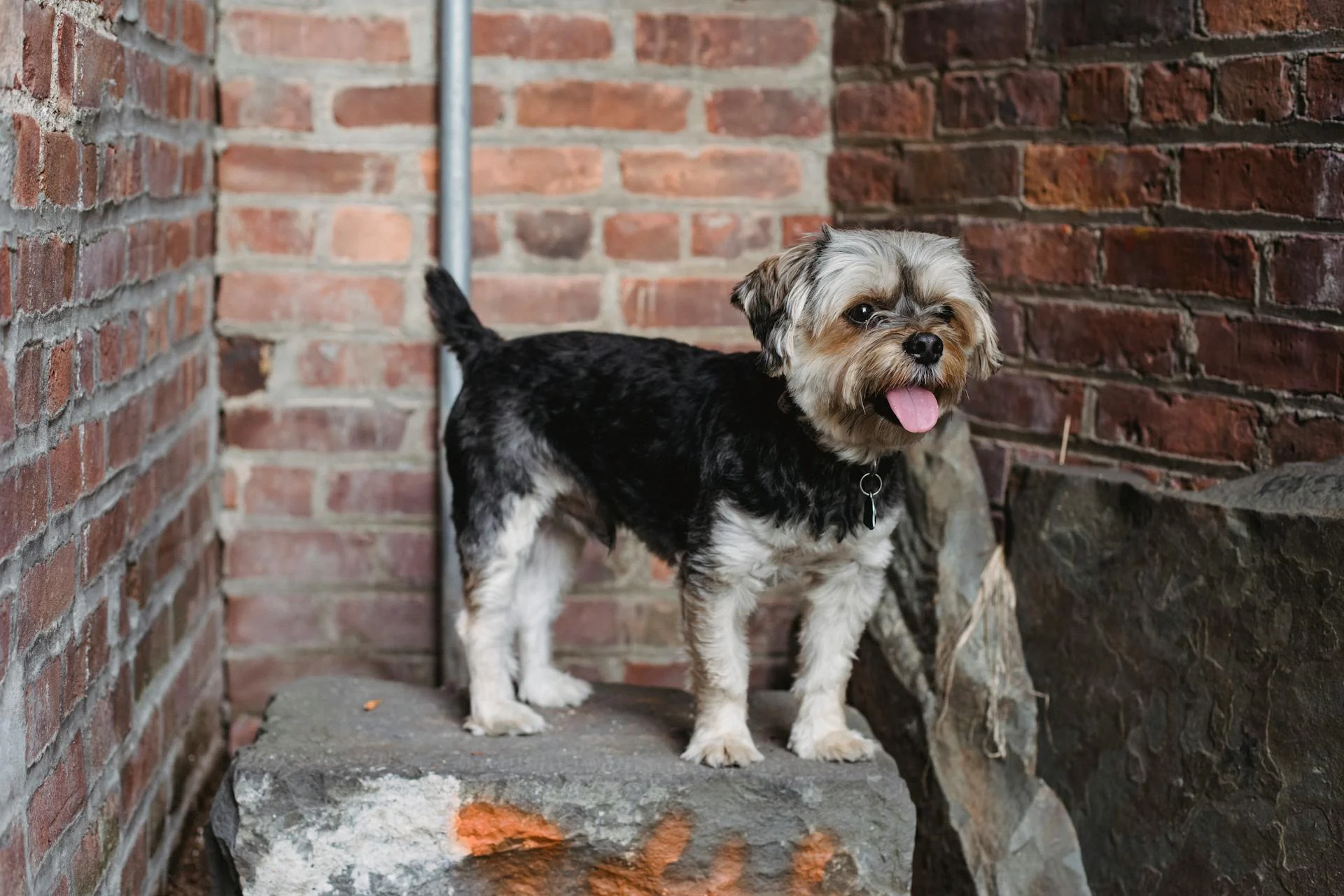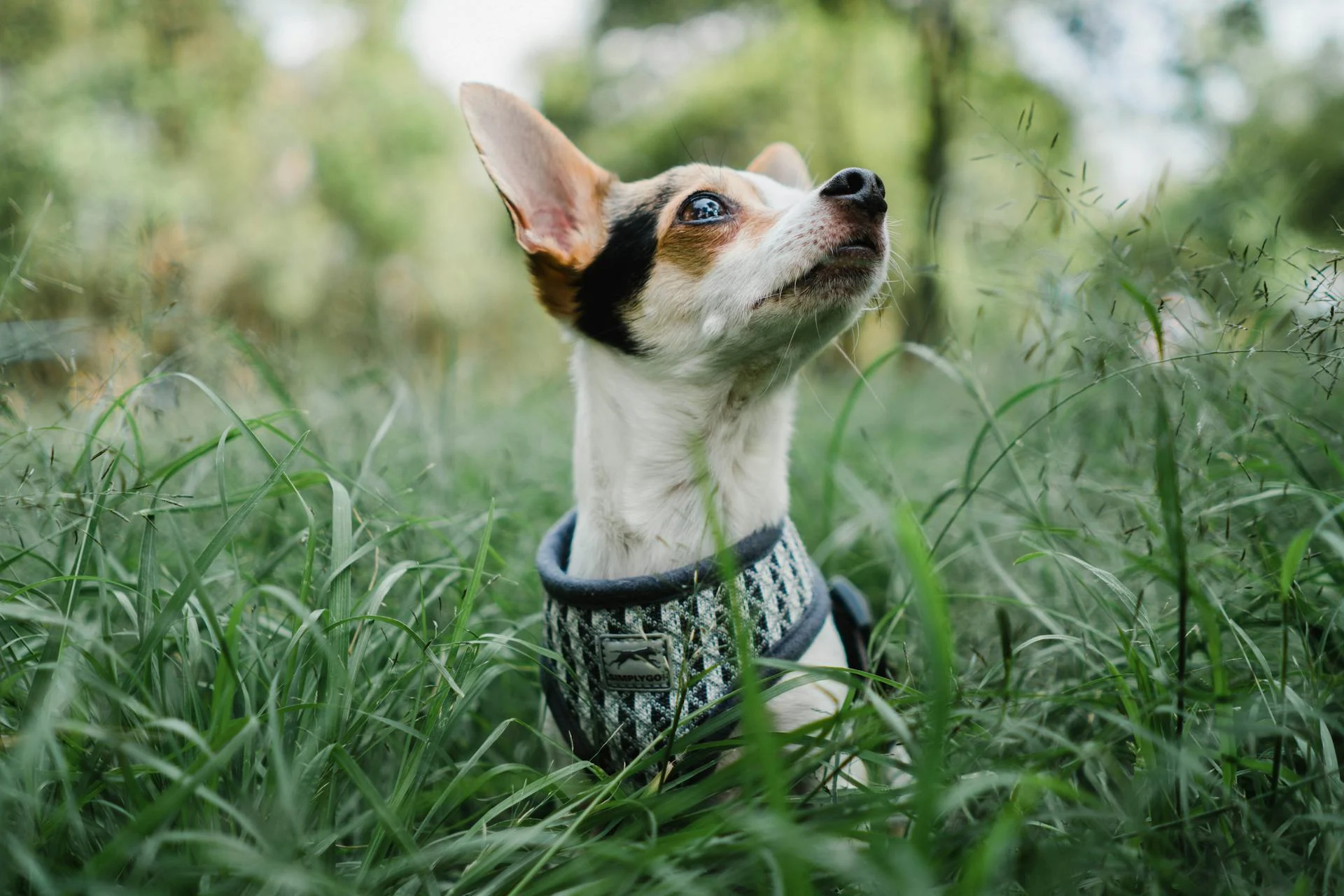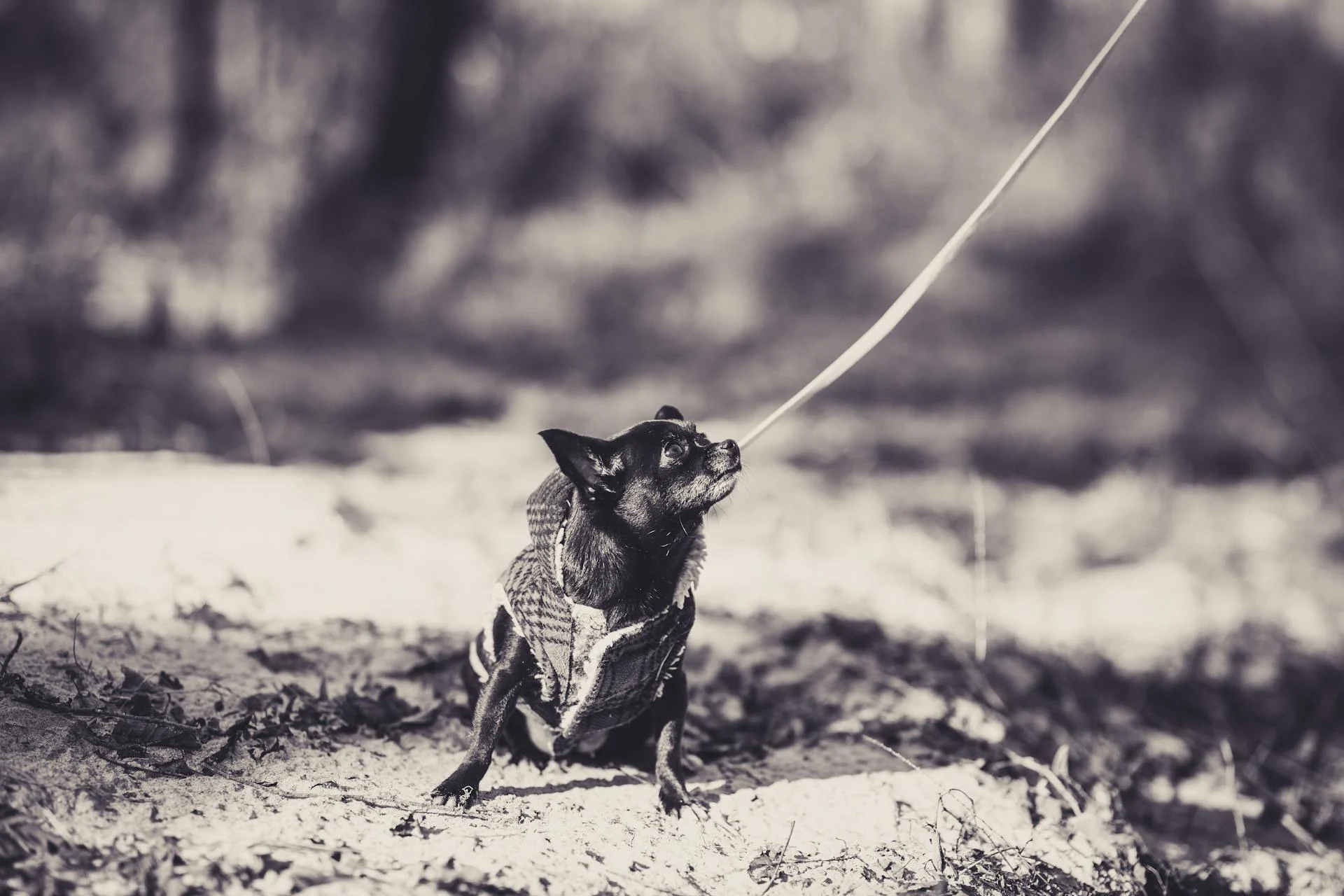
The Feist dog breed is a small to medium-sized hound that originated in the southern United States. They are known for their short stature and long, narrow head.
Feist dogs are generally friendly and outgoing, making them great companions for families and hunters alike. They are highly energetic and require regular exercise to stay happy and healthy.
Feist dogs are relatively low-maintenance when it comes to grooming, requiring only occasional nail trimming and bathing. They do, however, need regular ear cleaning to prevent infections.
Temperament & Intelligence
The Feist breed is known for being curious and intelligent, which makes for a fun combination, but also means they need a lot of mental stimulation to prevent boredom.
Feists are energetic and active dogs that require plenty of physical stimulation, including lots of walks and playtime to work off their excess energy.
These dogs are friendly, lively, and fearless, and form strong bonds with their families, but they shouldn't be left alone for hours at a time as they can become anxious and bored.
Kemmer Feists are excellent hunting dogs that also make wonderful companions for the entire family, and are loving and loyal dogs that enjoy spending time with their families.
Feists have high intelligence and are social and friendly with strangers, but this also means they don't make good watchdogs as they tend to get along well with most people.
Mountain Feists are incredibly friendly and loving and loyal to their families, and are less aggressive than other terriers.
Feists can be a bit barky, especially when someone comes to the front door, so be prepared for some noise.
Early training and socialization can bring out the best in your Feist, and they tend to be quite eager to please their owners, making training relatively easy with positive reinforcement methods.
Feists are true hunting dogs and may chase and even kill small animals, like squirrels, when outside, so it's essential to remember this when considering mixing animals in the house.
See what others are reading: Nice Dogs Breeds
Suitability of Dogs for Families
Feists can make wonderful family pets, but they do better with older children who know how to interact with animals appropriately. Proper socialization from a young age is key to developing a good relationship between the Feist and children.
Feists are generally social animals who love being around people, particularly children, making them a great fit for families. They are playful and love to play with kids of all ages.
However, it's essential to teach your children to be respectful and gentle with all dogs, especially when they're young. This will help prevent any biting or ear or tail pulling on either party.
Feists can get along well with other pets, especially other dogs, as long as they're well-socialized with them. But, it's crucial to supervise play between children and animals, especially when it comes to smaller animals.
Mountain Feists, in particular, have a strong prey drive, so it's best to keep them away from small animals like guinea pigs, rabbits, and hamsters. But, they can get along well with other dogs of equal or larger size.
Feists are generally not too fragile, thanks to their sturdy physique, making them a great choice for families with children. However, it's still essential to supervise play between children and animals to prevent any accidents.
Recommended read: Great Pyrenees Hunting Dog
Owning a Dog
Owning a Feist dog requires a lot of responsibility, but it can be incredibly rewarding.
First, you'll need to research reputable breeders or rescue organizations to find a healthy puppy. Be cautious of disreputable backyard breeders who may prioritize profit over the well-being of their dogs.
To keep your Feist happy and healthy, you'll need to provide regular exercise and mental stimulation. A couple of walks a day and some playtime outside should do the trick.
Feists are intelligent dogs that can be stubborn at times, so consistency and positive reinforcement are key when training. They also have a high prey drive, so be prepared to keep them on a leash or in a safe area.
Feists are social dogs that thrive on interaction, so if you're away from home often, consider getting another dog to keep them company. They don't make great watchdogs due to their friendly nature.
To care for your Feist's physical health, brush their teeth regularly, check their ears for irritation, and trim their nails once a month. They're also relatively low maintenance when it comes to grooming.
Feists are energetic dogs that need plenty of exercise to stay happy and healthy. Aim for at least an hour of physical activity per day, and consider agility training or playtime in the backyard to keep them entertained.
Broaden your view: How Much Exercise Do Labrador Retrievers Need
Health & Grooming
Feists are generally healthy dogs, but they can be prone to certain health issues, such as hip dysplasia, elbow dysplasia, allergic dermatitis, and food allergies. Regular veterinary check-ups are essential to monitor their health.
Feists have short coats that are easy to groom, requiring only occasional brushing and bathing. Brushing them two to three times a week should suffice, and they need a bath every six weeks or so, possibly with a hypoallergenic shampoo.
To keep your Feist's nails healthy, trim them every 3 to 4 weeks. Regular ear cleaning is also necessary, ideally once a week. Brushing their teeth two to three times a week can also prevent dental issues.
Here's a quick rundown of common health issues in Feists:
- Hip Dysplasia: a common orthopedic condition causing pain and discomfort
- Elbow Dysplasia: a malformation of the elbow joint leading to pain and reduced joint flexibility
- Allergic Dermatitis: a skin condition caused by an allergic reaction to environmental allergens
- Food Allergies: sensitivities to specific ingredients in their diet
Health
Mountain Feists are generally a healthy breed, but like all dogs, they can be prone to certain health issues. Hip dysplasia is a common orthopedic condition that can cause pain and discomfort.

Hip dysplasia occurs when the hip joint doesn't develop properly, leading to a mismatch between the ball and socket of the joint. This can result in lameness, stiffness, and arthritis as the dog ages.
Elbow dysplasia is another orthopedic condition that can affect Mountain Feists, primarily in large and fast-growing breeds. It involves a malformation of the elbow joint, leading to pain, lameness, and reduced joint flexibility.
Some Mountain Feists may experience allergic dermatitis, a skin condition caused by an allergic reaction to environmental allergens like pollen, dust mites, or certain plants. Symptoms include itching, redness, skin inflammation, and hair loss.
Food allergies can also affect Mountain Feists, causing skin issues, digestive problems, and ear infections. Treatment involves identifying and eliminating the allergenic ingredient from the dog's diet.
Here are some common health issues that can affect Mountain Feists:
- Hip dysplasia
- Elbow dysplasia
- Allergic dermatitis
- Food allergies
If you suspect your Mountain Feist has a food allergy, your veterinarian may recommend a trial-and-error process with hypoallergenic or limited-ingredient diets. Regular bathing with hypoallergenic shampoos can also help soothe the skin and reduce symptoms of allergic dermatitis.
On a similar theme: What Is the Most Hypoallergenic Dog Breed
Grooming

Grooming is a breeze with Feists, as they have short coats that don't shed much. They'll need a brush two or three times a week to keep them looking their best.
Their short coats mean they don't need haircuts, but they should still be bathed every six weeks or so. This is especially important due to their predisposition to allergies, so you may need to find a special shampoo.
Feists are relatively low-maintenance when it comes to their coats, but they do shed an average amount year-round. Occasional brushing will help remove loose hair and keep them looking neat.
You'll need to trim their nails every 3 to 4 weeks, and brush their teeth two to three times a week to keep them healthy. This will also help prevent any dental issues.
Feists are sensitive dogs, so be gentle when cleaning their ears, which should be done at least once a week. They may not like it, but it's an important part of their grooming routine.
In extreme weather conditions, Feists may need a little extra care. If it's snowing or very cold, they may appreciate a jacket to keep them warm. And in hot weather, be sure to provide plenty of shade and water to prevent dehydration or heat stroke.
Explore further: Grooming an English Setter
Exercise & Size

When you bring a Feist into your life, you'll need to be prepared for a high-energy companion. They require 1–1.5 hours of exercise daily to prevent boredom and destructive behaviors.
Feists are small- to medium-sized dogs, typically between ten and 22 inches tall and weighing between ten and 30 pounds.
Exercise
Exercise is crucial for Feist dogs, requiring 1-1.5 hours of activity daily to prevent boredom and destructive behavior.
Feist dogs need more than just walks, so plan for runs, hikes, games of chase, and swim time to keep them engaged.
Aim for a mix of physical activities, including agility training and trips to the dog park, to keep your Feist happy and healthy.
Feist dogs are not for couch potatoes, so be prepared to get off the sofa and engage in activity with your pup.
If this caught your attention, see: Why Are Labradors so Popular
Size
Mountain Feists are small- to medium-sized dogs. They generally range in height from ten to 22 inches tall. Their weight is usually between ten and 30 pounds.
Varieties & History
There are many varieties of Feists, including the Mountain Feist, Barger Stock Feist, Mullens Feist, and American Treeing Feist.
The Mountain Feist is a specific type of Feist that originated in the Ozark Mountains in Missouri, Arkansas, Kansas, and Oklahoma.
They're believed to have been in the country since as early as the 17th and 18th centuries, and were even owned by or associated with some of our first presidents, including George Washington and Abraham Lincoln.
Mountain Feists were bred as low-maintenance dogs to hunt small vermin above-ground, and are often nicknamed as a class of "squirrel dogs" due to their hunting skills.
For another approach, see: Mountain Lion Hunting Dogs
Varieties of
There are different kinds of Feists. The Mountain Feist, Barger Stock Feist, Mullens Feist, and American Treeing Feist are some of the many varieties.
The Feist breed originated through the mixing of various other breeds, but it is thought that there are two different types of Feist dogs. The Mountain Feist and the Treeing Feist are the two main types of Feist dogs.
The Mountain Feist is a type of Feist dog. It's a popular breed known for its hunting abilities.
Here's an interesting read: Dog Breed Mountain Feist
History

The Mountain Feist has a rich history that's a bit murky, but we can piece together some fascinating facts. They originated in the Ozark Mountains in Missouri, Arkansas, Kansas, and Oklahoma.
They've been around since at least the 17th and 18th centuries, with some even suggesting they were present before other ratting terriers. This makes them pioneers in their own right!
George Washington and Abraham Lincoln both mentioned "feists" in their writings, with Washington even referring to them in his diary and Lincoln referencing them in a poem. This suggests they were valued companions for our founding fathers.
The breed has undergone changes over time, with physical characteristics becoming more refined and specific. Today, they're often confused with Mountain Curs, but Mountain Feists are smaller and have distinct traits.
Despite their hunting prowess, Mountain Feists are friendly, playful, and loving dogs that make great family pets. They thrive in environments with plenty of space to exercise their high energy.
Kemmer Puppies
Kemmer Feist puppies can be hard to find, so it's essential to do your research and locate an ethical breeder near you.
Finding a reputable breeder is crucial to ensure you get a healthy puppy with good breeding practices. Always ask to visit the facilities before making any payment and meet the puppy's parents to get an idea of the traits and temperament your pup can have.
Kemmer Feist puppies can make great family dogs, especially for families with children of all ages. Their playful natures make them great companions, but always teach your children to be respectful and gentle with all dogs.
If you live in the American South or California, you may have a better chance of finding a Feist rescue, but this is not a guarantee. You may need to travel to get a Feist puppy from a rescue organization.
For another approach, see: Irish Setter Dog Breeders
Dogs Often Confused with Jack Russells and Rat Terriers
Kemmer Feists might resemble the Jack Russell or the Rat Terrier, but they're their own unique breed.
These dogs are often confused with Jack Russells and Rat Terriers, which can make it challenging for owners to get proper identification and care.
Kemmer Feists tend to have long legs, a characteristic that sets them apart from other breeds.
They also have short tails, which is a noticeable feature that can help owners and veterinarians distinguish them from other breeds.
Their calm disposition is another trait that's often overlooked, but it's a key aspect of their personality.
Frequently Asked Questions
Do Feist dogs bark a lot?
Feist dogs tend to bark frequently, especially when excited or sensing a stranger or intruder. They can make effective watchdogs, but their barking habits vary.
Are mountain Feists aggressive?
Mountain Feists are not inherently aggressive, but may become defensive if feeling threatened or uncertain. Proper socialization and a comfortable environment can help prevent nervous behavior.
Are Feist dogs easy to train?
Feist dogs are intelligent and can learn quickly, but their independent nature can make training a challenge, especially for first-time owners. Experienced owners may find training a Feist easier due to their ability to understand and work with the breed's unique personality.
Is a Feist a good family dog?
Yes, Feists make great family dogs due to their strong bond with loved ones. However, they require regular attention and interaction to prevent boredom and anxiety.
What is a Feist a mix of?
A Feist is a mix of terriers, including the Smooth Fox Terrier, Manchester Terrier, and the now-extinct English White Terrier. Its ancestry is rooted in British terriers brought to the US by immigrants.
Featured Images: pexels.com


